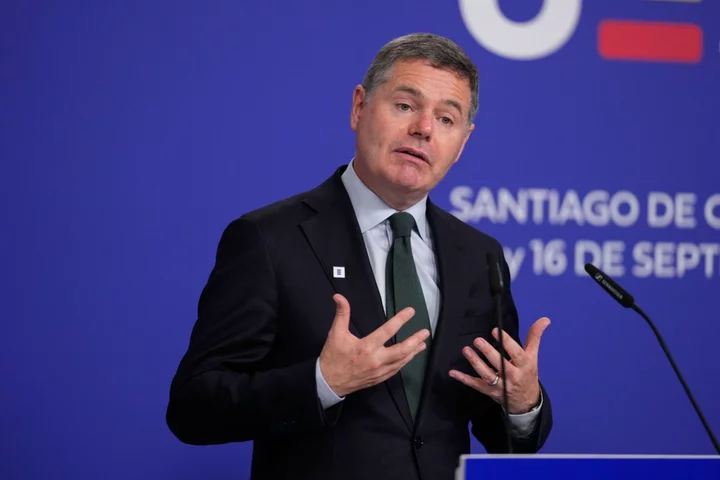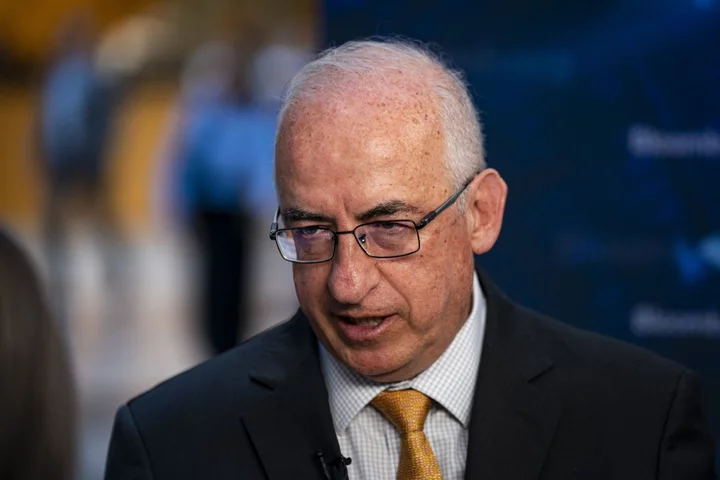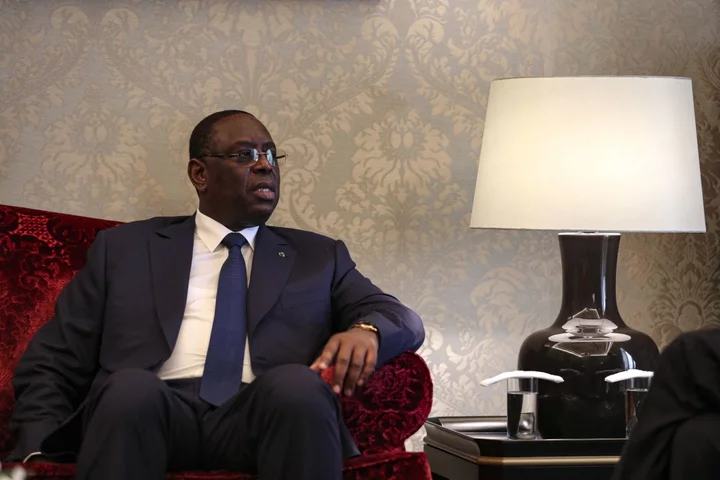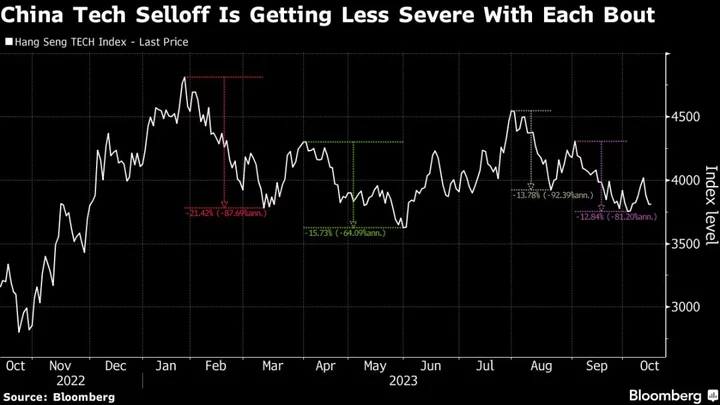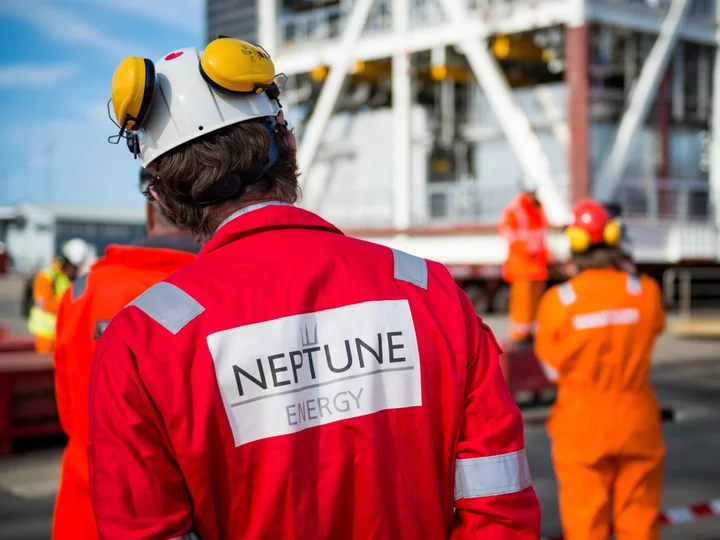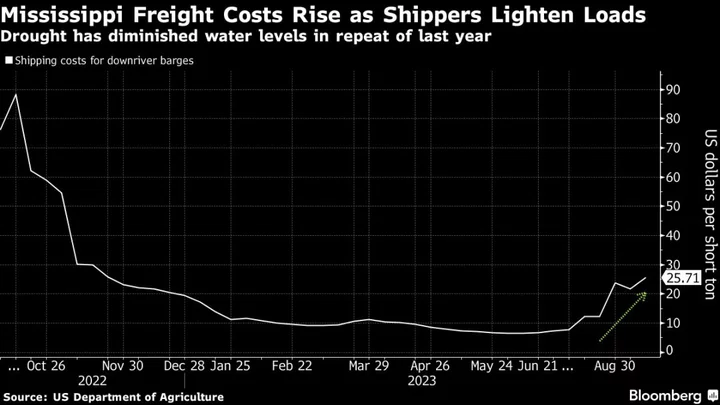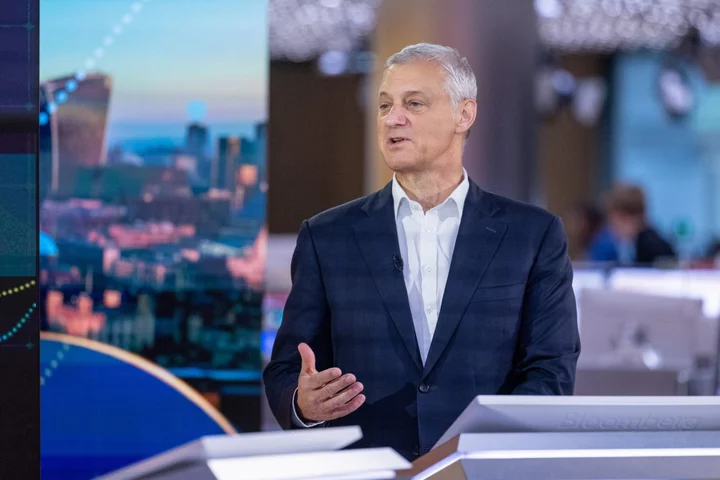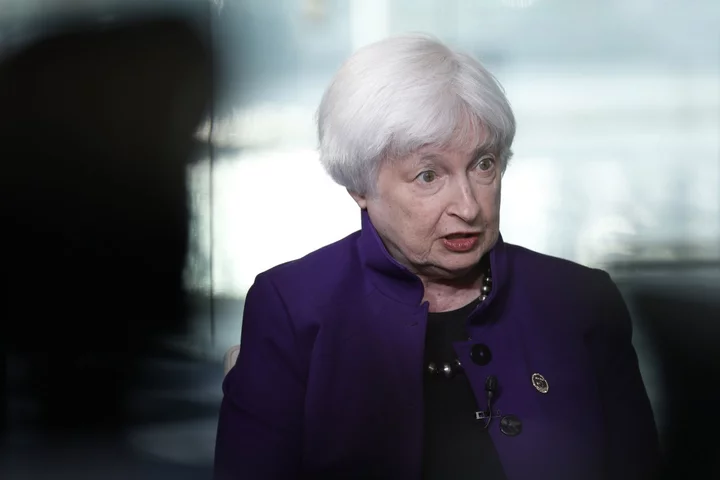Ireland’s Paschal Donohoe, whose leadership of euro-area finance ministers has elevated his global profile, is considering a bid to lead the International Monetary Fund, according to people familiar with the matter.
Donohoe, 49, is currently Ireland’s minister for public expenditure and served as finance minister from 2017 to 2022. He has led the Eurogroup — the body of finance chiefs that steered the bloc through its sovereign debt crisis and the pandemic — since mid-2020, having been elected late last year for a second 2 ½-year term.
The current term of IMF Managing Director Kristalina Georgieva ends in September 2024, but the selection can take shape months in advance. Her support from the US, the fund’s biggest voting member, wavered following accusations in 2021 that she improperly influenced a World Bank ranking of China’s business climate.
While no candidate has put forward their name yet for the IMF role, the people said Donohoe is holding preliminary conversations over the matter. They requested anonymity to discuss the private talks.
A spokeswoman for Donohoe said he is “fully focused on his current work and responsibilities in Ireland and in the Eurogroup and committed to serving his full mandate. He will also be a candidate in the next election in Ireland.”
Georgieva has not yet publicly stated whether she intends to seek a second term. An IMF spokesperson said Georgieva’s attention “is on helping the membership of the IMF face the pressing economic challenges that the world is grappling with.”
Donohoe has forged a reputation as a consensus builder, well-liked and respected by all sides — both in his home country and in Brussels. These traits helped him stay head of the Eurogroup even when his job change to budget minister would have given his EU counterparts the opportunity to find a new leader.
G-7 Meetings
In his capacity as the representative of the euro-zone economy, Donohoe has also regularly attended the Group of Seven meetings of finance ministers and central bankers from the world’s largest advanced economies, along with the IMF chief.
Whoever takes on the post at the helm of the IMF will do so at a precarious time, with several low-income nations in or near debt distress and persisting challenges to the global economic outlook following aggressive interest-rate hikes from central banks.
Ireland was itself under an IMF lending program just over a decade ago, alongside other euro-zone peers during the region’s sovereign debt crisis.
It’s unclear how other IMF members, particularly those from emerging market economies, would react to another European candidate. Several of these countries, including China and Brazil, have also called for a realignment of IMF voting shares to better reflect their relative weight in the global economy.
The IMF has always been led by a European national, in a tacit understanding between Europe and the US, which in turn gets to nominate the president of the World Bank. Over the IMF’s eight decades, five of 12 managing directors have been from France; none has been from Ireland.
While the Washington-based fund’s Executive Board elects the leader in a vote, the support of Europe and the US – together accounting for around half of all voting shares — would make it tough for other candidates to surmount.
Donohoe has a plausible path to US support. He has a close relationship with Treasury Secretary Janet Yellen, largely forged during Yellen’s efforts to cajole support from countries including Ireland for a global tax accord. His backing was seen as key in Yellen’s push to clinch a deal.
Yellen Dinner
The two of them have met regularly over the past few years — most recently for dinner in Washington earlier this week. Yellen attended the Eurogroup meeting Donohoe chaired in Luxembourg in October; she has also spoken to the Eurogroup in Brussels and met with him in Dublin.
A Treasury spokesperson didn’t immediately respond to a request for comment.
Through his role as Eurogroup president, Donohoe has built a good rapport with several European finance ministers who’ll have to endorse him for the job, as well as European Central Bank President Christine Lagarde, who previously held the top IMF post.
Donohoe’s potential bid emerges as one of the top possible candidates, Spanish Economy minister Nadia Calvino, is moving closer to taking on the presidency of the European Investment Bank.
But even within Europe, the choice of a single candidate is often the result of an effort to balance a series of different and often divergent geographical and political interests, and Donohoe could face an uphill battle.
Georgieva, a Bulgarian national, beat out other hopefuls in 2019, in part because she was from an Eastern European nation, a region typically underrepresented in top institutional positions.
In 2019 the IMF executive board scrapped an age restriction for the fund’s managing director to be under 65 years old at the time of appointment so Georgieva, who was 66 at the time, could secure the job.
If European nations fail to agree on an IMF candidate before June, the choice could get caught up in broader horse-trading for top jobs that’s set to take place next summer over posts atop the European Commission, European Council and potentially NATO.
--With assistance from Zoe Schneeweiss, Jennifer Duggan and Ramsey Al-Rikabi.

